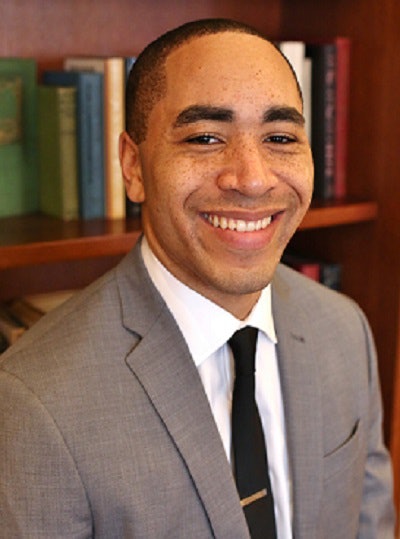In a session at the annual conference of the Association for the Study of Higher Education (ASHE) hosted virtually in November on campus climate, I posed the following question to a panel of scholars, whom I admire greatly, and whose research on diversity and equity has been incredibly impactful in informing practice: “What progress have you seen and what challenges remain with respect to how mental health and illness have been addressed? I’m interested in the stigma associated with mental illness—estimates suggest one-fifth of faculty live with a mental illness, but few disclose, and disclosure combats stigma and helps students with belonging.”
 Dr. Daniel Blake
Dr. Daniel BlakeI was genuinely surprised when their responses reflected that faculty mental health was not central to their considerations of campus climate. One panelist alluded to how reward structures such as tenure and promotion disincentivize faculty from disclosing, but none of the panelists mentioned engaging with faculty mental health in their research, nor did they discuss work being done on it. They shared that campus climate studies have historically focused on student experiences with race and racism and pointed to the need to further expand the scope of this research.
The ways higher education overlooks mental illness mirror how society often overlooks the intersections of racial injustice and disability. A 2016 report suggests that between a third and a half of people who are killed by law enforcement have a disability; however, the report draws attention to how the media frequently ignores the disability component in their coverage of these stories “or, worse, is telling them in ways that intensify stigma and ableism” (p. 1). Less included among police killings that gain national attention are those of people struggling with mental illnesses, such as Deborah Danner, Michelle Cusseaux, and Daniel Prude.
It was the latter whose killing this year ultimately led me to write an op-ed in which I disclosed that I, too, experienced brutality at the hands of law enforcement during a mental health crisis. As a recent Ph.D. graduate who had just started a postdoc, this was not a decision I arrived at easily. I did not tell anyone about my bipolar diagnosis during my graduate education and had heard, on several occasions, people in academia speaking in disparaging and stereotypical ways about mental illnesses. Despite my career stage, I decided that it was my responsibility to use the privilege and platform that I have to try to help humanize people with mental illnesses and to push for changes in how authorities respond to those in crisis. While I grapple with how my disclosure might affect my career, I was reminded just a month after my op-ed was released how urgent this work is when Walter Wallace Jr. was killed a few blocks away from where I used to live as a Ph.D. student in West Philadelphia.
Though we are in an era of growing anti-intellectualism, colleges and universities still retain a large amount of influence in educating vast sectors of society and shaping public discourse, and can play a large role in destigmatizing mental illness. Stigma is one of the primary barriers to diagnosis and treatment, and given the prevalence of mental illness across demographic groups, fighting it should be a cause that everyone can get behind. With this in mind, here are a few ways institutions and individuals can contribute to these efforts:
1) Educate your campus about mental illness. Though mental health, particularly that of students, is a topic of conversation more now than before, current efforts are insufficient to the task at hand. Mental health is discussed in general ways, too often without reference to specific symptoms and diagnoses, which is all the more troubling because many illnesses, including depression, bipolar disorder and schizophrenia, often manifest for the first time in the late teens and early twenties, the ages of most undergraduate students. Teaching students, faculty, and staff about mental illnesses and the need to look out for one another can help to establish a community of care and reduce suffering. Possible avenues for this include student orientations, first-year seminars, staff and faculty onboarding, professional development sessions, and campus events.
2) Challenge damaging language about mental illness. Based on conversations I have had and reading I have done on the topic, it seems that my experiences hearing people in academia speak in disparaging and stereotypical ways about mental illnesses are not an exception, but rather the norm. Trivializing mental illnesses by mocking them or using them as insults is not only hurtful to people with diagnoses and to the many who have loved ones who struggle with mental illness, it exacerbates stigma, which prevents people from getting help. Hold yourself accountable to not perpetuate this problem, and when you hear such language from others, take a moment to educate them about how it is damaging and encourage them to take a compassionate approach to discussing mental illness.
3) If you have a mental illness, consider disclosing your condition. In her 2012 article, “‘Coming into Presence’ as Mentally Ill in Academia: A New Logic of Emancipation,” Dr. Rochelle Skogen discusses her path to disclosing that she has bipolar disorder, writing of people with mental illnesses who work in professional-class jobs like the faculty that “we cannot be models of success, we cannot shift the ways in which we have been portrayed by mainstream society, if we do not reveal ourselves to be who we truly are” (p. 493). The risks of disclosure are real and this is a decision one should only come to after careful consideration, but as someone on the other side I can say that it is personally fulfilling and meaningful, especially when I think of how disheartening it was after I was first diagnosed to struggle to find relatable examples of people managing their illness. I can now attest to how powerful learning of other scholars who have disclosed has been for me—at the conclusion of the conference I mentioned at the beginning of this piece, Dr. D-L Stewart, who is public about his bipolar diagnosis, became the new president of the professional association hosting the conference, which is the premier scholarly society in the field of higher education.
Dr. Stewart’s success, the organizing efforts of disabled student activists and academics (such as Disabled in Higher Ed and Disabled Academic Collective), and resources like Dr. Margaret Price and Dr. Stephanie Kerschbaum’s guide for supporting faculty with mental illnesses make me optimistic for the future. I am hopeful that others in academia will join the fight to destigmatize mental illness and create more healthy and supportive campuses and communities.
Dr. Daniel Blake earned his Ph.D. in May 2020 from the University of Pennsylvania, where he continues as a Provost Postdoctoral Fellow. You can follow him on Twitter @danielhighered.















